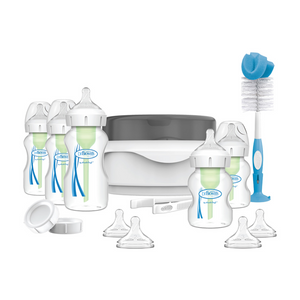
What to Expect: The First Steps of your Pregnancy Journey
First-time mothers often have a multitude of questions and concerns as they navigate the chapters of pregnancy, childbirth, and early parenthood. With a plethora of sources for information, it can be overwhelming and confusing. Especially when it comes to knowing where is best to turn and which information to trust.
At Baby Central, we’re on a mission to demystify the complex and help parents everywhere to have confidence and peace of mind at every stage of journey.
In the first of this series that focusses on the common questions first-time mums, we will look at what to expect during early pregnancy and what at the key touchpoints with healthcare professionals during those early days.
Here are some common questions that first-time mums in the UK frequently ask:
How do I confirm my pregnancy?
Whether you’re trying to conceive, or it has come as a surprise, you often have an inkling that something is going on inside your body. For some this can be a dizzy spell, a missed period, or a change in appetite. For others, there may be no signs at all. Everyone is different. But if you do feel like there may be a chance you’re pregnant, an at home test is enough to confirm and notify your local GP practice.
They will be able to point you in the direction of the next port of call – which is often your local midwife hub. Some will use an online portal where you register and they make contact, or some may arrange an your booking appointment on the phone. Regardless of the initial registration of the pregnancy, your first midwife appointment should be before you are 10 weeks pregnant.
What will happen at your first Midwife appointment?
Also known as your booking appointment, the first face to face with your midwife will ask a series of questions that will help to shape your care during the pregnancy journey.
Some of the questions they may as, could include:
🏠Where you live and who you live you.
👨Any information you may want to give about the father.
🤰Have you had any other pregnancies in the past and the outcomes.
🚭Your use of alcohol, smoking or drugs.
🧑⚕️Your physical and mental health and any concerns you may have about these with regards to your pregnancy.
👪 Any family health issues which may have an influence on your pregnancy.
❔General questions about your background or lifestyle that may also shape your care plan.
The information collected during this time is judgement free. It is designed to ensure that you and your baby are provided with the best care and support available.
Alongside finding out more about you, they will also run a series of tests that will highlight any complications that may arise, and again ensure that you and your baby have the best care available. These will include measuring your height and weight, checking your blood pressure, a urine test (these generally happen at every appointment) and a blood test which will check your general health, blood group and infectious diseases such as HIV, Hepatitis B and syphilis.
It is important for all of these tests to be completed as soon as possible so that any relevant treatments can be started to reduce any associated risks.
During the first appointments with your midwife they usually won’t use a doppler or check the babies heartbeat, as it can be inaccurate and the first ultrasound scan is much more insightful to see the health of the small foetus.
When do you have your first scan?
During this appointment your midwife will then proceed to book in your first scan. This usually happens when you are 12 weeks pregnant. This is usually referred to as the dating scan. From the dating scan they can create a more accurate picture of the estimated delivery date (this date may be referred to as the EDD in your pregnancy notes) and check their development. They can also check for multiples and detect some health conditions which may arise.
Each trust will have their own rules about who can attend the scan, but usually you are allowed to take someone with you and enjoy the magical moment of seeing your baby for the first time together!
Usually, you will be advised to have a full bladder at the scan as this makes the ultrasound image a bit clearer and the whole process will be around 20 minutes. Sometimes it can be shorter, sometimes a little longer depending on the position of the baby!
Where to find more information.
Midwives play a crucial role in providing reassurance, education, and support to first-time mums, helping them navigate any questions or concerns they may have. Midwives or your GP/healthcare professional should always be your first port of call for any medical advice or pregnancy concerns.


